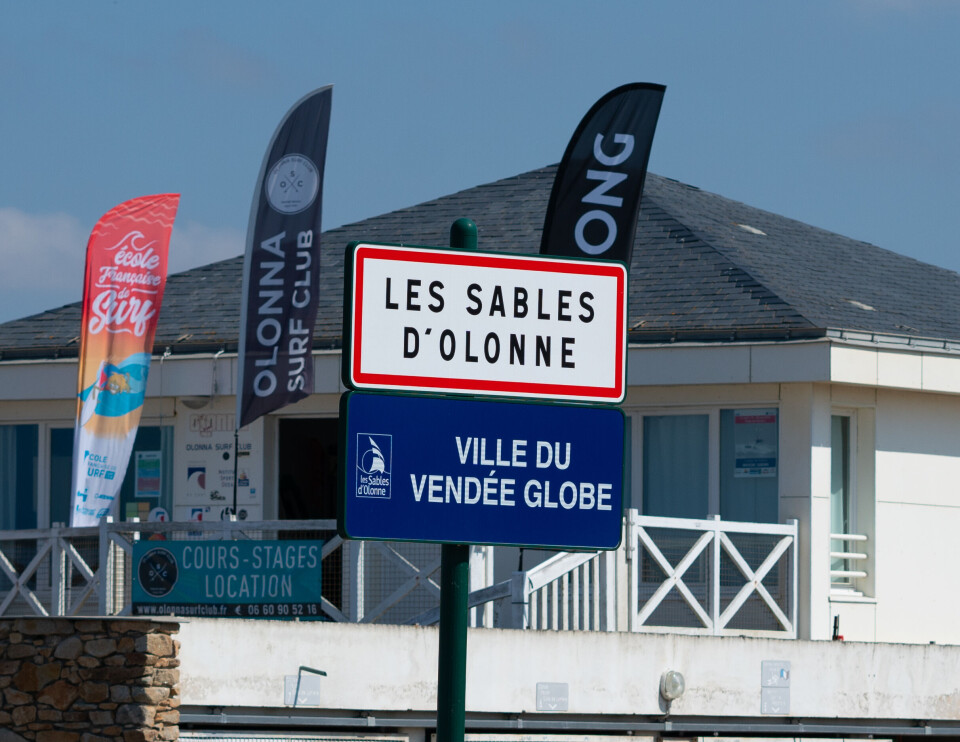-
Strikes and protests in January 2026 and how you may be affected
Doctors, rail staff, and farmers are all taking action
-
Good news as lower electricity bills confirmed in France
The change is not a ‘revolution’ but will give some purchasing power back, minister says
-
French ski resorts report excellent Christmas despite less snow than last year
Bookings are up and non-snow related activities are also on the rise
French mayor’s anger as court orders that Saint Michel statue must go
The statue had been approved by 94% of voters in a referendum in 2022 but a court has ruled that it breaks France’s secularism laws

A mayor in western France has reacted angrily after the supreme administrative court ordered a statue of Saint Michel in his town must be taken down “in the name of the separation of Church and State”. It is forbidden in France to display religious signs and symbols in most public spaces because of a 1905 law separating Church from state although this does not apply to churches, cemeteries, war memorials, museums and exhibitions.
The statue was installed in the public square in the Atlantic coastal town of Les Sables-d’Olonne (Vendée, Pays de la Loire) in 2018, in front of a church of the same name.
But on April 7, France’s supreme administrative court le Conseil d’Etat rejected the town’s appeal to keep the statue and ordered its removal.
It said this was “in the name of the separation of Church and State”, or secularism (laïcité in French), which is often cited as one of France’s main principles.
After the statue was installed in the town’s public square, La fédération de Vendée de la libre pensée (the Vendée federation of free thought) took the issue to court. The administrative court in Nantes, followed by the Court of Appeal, asked the town to remove the statue, but the mayor of Les Sables-d’Olonne, Yannick Moreau, appealed.
After the latest ruling, Mr Moreau said that he and the town’s citizens wanted the statue to remain, but that they would respect the court’s decision.
In a press release, he said: “I will not contest the court’s decision. Our statue will be removed but the will and vote of the Sablais will be respected: we will find a solution so that it remains in front of Saint-Michel church. We must find a solution that respects the law, but also the people’s will.”
The statue has been in the town for years, having been in front of the Saint Michel school before being sold, and taken back by the commune to be installed in front of the church. In March 2022, the town held a referendum on whether to keep the statue, and 94% of the 4,593 voters said they supported it staying in place.
Since the statue was first ordered to be removed last year, hundreds of local residents have taken part in marches in favour of keeping the monument in place.
🔴La Cour Administrative d'appel de Nantes demande que la statue de l’Archange St-Michel soit déboulonnée au nom de la laïcité
— Daniel (@Daniel75006) September 17, 2022
Grand rassemblement de #Reconquête et de #GénérationZ au pied de la statue dimanche 18 septembre Îlot St-Michel 14h Les Sables d'Olonne.
Venez nombreux ! pic.twitter.com/NkyyX9Prx9
Les jeunes de Génération Z sont arrivés aux Sables d'Olonne pour accueillir Eric Zemmour, qui viendra "défendre" la statue de Saint-Michel dont la justice a ordonné le déboulonnage dans les six mois pic.twitter.com/jcOSKKvuWS
— Marylise Kerjouan (@mkerjouan) January 8, 2022
300 anciens parachutistes ont défilé dans les rues des Sables d'Olonne, contre le déboulonnage de la statue de St-Michel, leur saint patron, ordonnée par la justice suite à la plainte d'une association de gauche. pic.twitter.com/HhtOtn95Hr
— Fdesouche.com est une revue de presse (@F_Desouche) October 15, 2022
Mr Moreau expressed his “incomprehension” at the decision, and said: “The Conseil d’Etat has washed its hands of the issue, in a hurry to get the ruling over with. It has not accepted our appeal and definitively condemned our statue.
“The few ayatollahs who won this absurd trial must be happy. Too bad for the victims.”
Le Conseil d’État rend publique ce matin (#vendredisaint) sa décision de ne pas examiner le pourvoi de la ville des Sables concernant le devenir de notre #statue #SaintMichel.
— Yannick MOREAU (@YannickMOREAU) April 7, 2023
La tempête du #wokisme et de la #cancelculture s’est abattue sur Les Sables d’Olonne.
Ma réaction ⤵️ pic.twitter.com/ELH0XgGNHY
On Twitter, Mr Moreau went further, saying he was “flabbergasted and outraged”, and that it was a “sad Good Friday”. In his press release, he reiterated: “[In Les Sables-d’Olonne] we are used to storms, but the storm of ‘wokeism’ and ‘cancel culture’ has finally hit us.”
Speaking toLe Figaro, Mr Moreau said: “It’s incredible that in France, the highest administrative court does not consider that a statue forms part of the cultural heritage of a neighbourhood, and of a town whose coat of arms features a virgin protector of sailors.”
He said that “wokeism had coldly and violently hit a very inoffensive statue”.
Read also
French court orders removal of Virgin Mary statue as it is religious
























